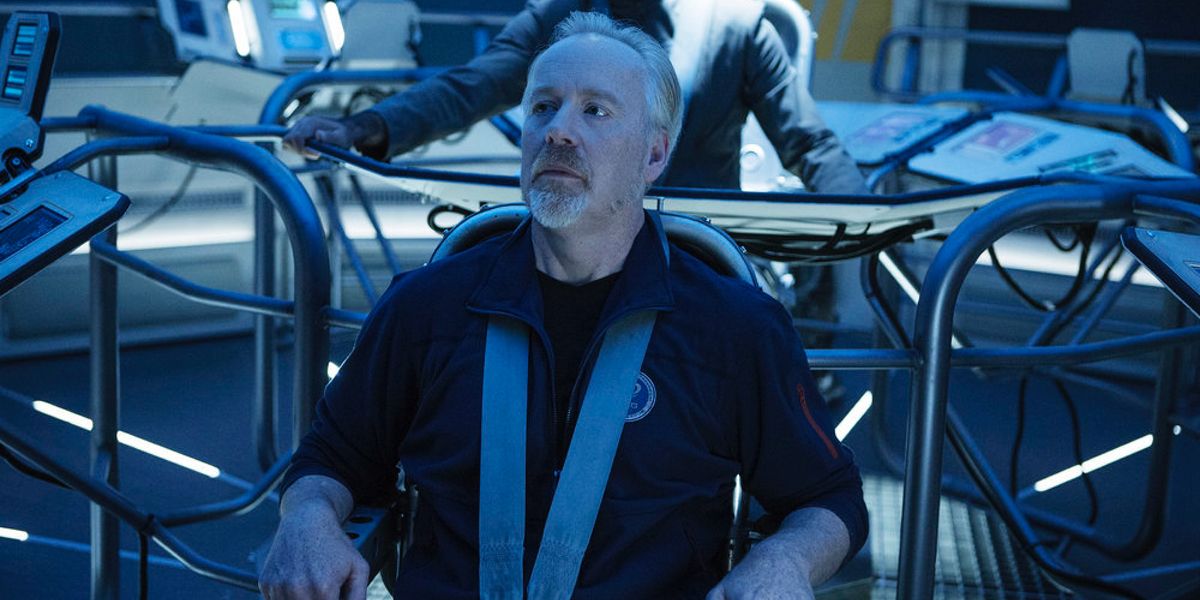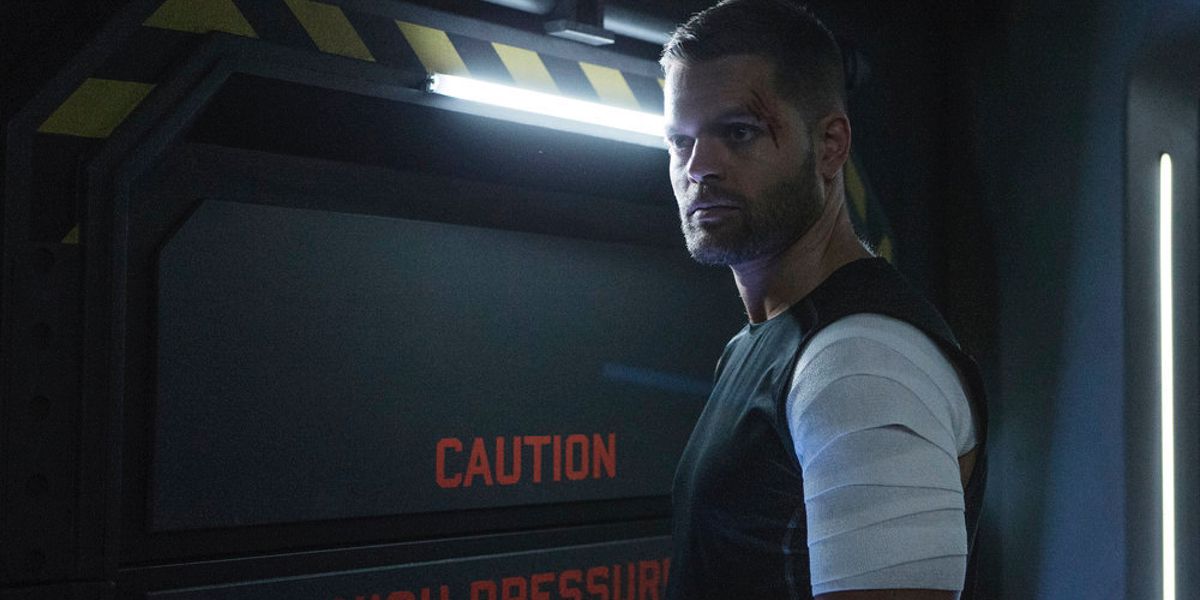The first season of Syfy's The Expanse was largely concerned with delivering a story that lived up to the series' title. With that came an overwhelming sense of discovery as the show set up its various interplanetary factions and worked to introduce the movers and shakers within each group. The sizeable cast peppered the vast reaches of the solar system, transforming the void of space into a playing field not unlike the ever-changing animated map of Westeros on HBO's Game of Thrones. This time, though, planets and moons replaced continents with Earth and Mars the two superpowers in the midst of a futuristic Cold War while smaller (but still massive, relatively speaking) man-made space stations took up the part of the scrappy underdog, seeking not only a seat at the interstellar table, but any advantage that would make the major players sit up and take notice.
To the show's credit, The Expanse excelled at managing its multiple threads of political machinations, working class rebellions, unsanctioned clandestine experimentation, and a noir-inspired mystery of the missing Julie Mao and her terrible fate that was destined to alter the course of humankind forever. In other words, the first season of The Expanse more than lived up to its name.
All of that was poised to change with the discovery of the protomolecule, however, an element of presumed extraterrestrial origin and whose true purpose remains unknown. In true human fashion, those who have already gotten their hands on the radiant blue substance have found a way to weaponize it, to make its unique properties part of the escalating arms race that has already put Earth and Mars on the brink of mutually assured nuclear destruction numerous times. And at the end of the season 2 finale, the protomolecule is poised to put Fred Johnson and the Belt (though, more likely just Fred Johnson) on even footing with the other big players in the solar system. And with that, the interplanetary setting of the series becomes a whole lot smaller as the concerns of the various players gradually begin to focus on the one thing destined to bring them all together.
Aside from a guest appearance by former Mythbuster Adam Savage, the season 2 finale, 'Caliban's War', finds the crew of the Rocinante reunited following the events of 'The Monster and the Rocket', which briefly set Holden, Alex, and newcomer Praxideke on a mission to destroy the protomoleule hybrid before cooler heads prevailed and the Martian warship set its sites on protecting a ship full of refugees that also happened to have Naomi and Amos on board. Unbeknownst to the unified Rocinante crew, however, they have a dangerous stowaway just waiting to break up the otherwise happy reunion.
The stowaway sets into motion a series of events that will again change the dynamic aboard the Rocinante, but it also serves as the jumping-off point for the finale to explore two additional story threads, both of which prioritize action and help make for a tense finale that nonetheless feels like the season ran out of runway.
Holden has been chasing the protomolecule all season long, and when he finally confronts the creature, he nearly loses his life. The build-up to the hybrid has been a big part of The Expanse in season 2, it was the element that directly and indirectly brought Bobbie Draper to Chrisjen's rapidly shrinking cohort and it was the major carryover from season 1 – what better way to make use of a somewhat nebulous substance than weaponize it and put it in humanoid form? In a way, the experiments that brought the hybrid into existence feel like a commentary on the limits of human ingenuity and, in a way, storytelling. The encounter with the hybrid on the Roci was inert for the most part, but not without stakes. To the credit of the show's writers, they turned what essentially was a bland encounter between man and beast into an engineering problem, one that required Naomi, Amos, Alex, and Praxi to put their heads together and essentially MacGyver a way out for both themselves and for Holden.
Getting science-y has always been The Expanse's strong suit, which is why the finale's emphasis on action made for such an interesting, maybe even atypical hour. The standoff between Mao's men and Cotyar and Bobbie essentially split itself between the task of Draper locating her power armor and the choice of whom Cotyar was really loyal to. The episode leaned heavily on the idea that Cotyar was a spy, suggesting in the show's complicated political climate that allegiances are nothing if not fluid. The moment was helped out somewhat by Bobbie's decision earlier to turn her back on Mars on moral grounds, essentially opening the door for Cotyar to act in the interest of self-preservation over his presumed duty to Chrisjen.
Again, The Expanse gets good mileage out of a tense situation that requires a character to make a decision (or series of decisions) that could potentially have a big impact on the show going forward. Like the crew of the Rocianate, Chrisjen's soldiers (that's got a nice ring to it) remain intact for the most part, as the series wasn't ready to throw a Thomas Jane-level curveball at the narrative in the season's closing moments. Instead, it aimed to dazzle by refocusing the narrative on the remains of Eros on Venus and what the protomolecule is capable of when not restricted by humankind's lack of imagination and narrow engineering ambitions.
Not only does the Venus crater plotline grant viewers something they likely thought they would never see – i.e., Adam Savage being smothered in the toxic atmosphere of second planet from the sun – it makes the protomolecule weird again. As so much of the second season was about the race to see who would control the next great weapon in the solar system – which now has Fred Johnson and Sadivir Errinwright in exceedingly dangerous positions – the finale throws a welcome curveball at Earth, Mars, and the Belt by intimating the protomolecule unrestrained by human interference is capable of some amazing things that will undoubtedly alter the course of human evolution. Like Naomi said, it's here now and there's no going back. Humanity is already irrevocably changed; it just doesn't know it yet. But the protomolecule could also be the cause for unification in the solar system. Whether that will be against an unknown element or through it will be an answer for season 3 to provide.
Next: The Expanse: Explaining The Protomolecule
The Expanse will return for season 3 in 2018.



